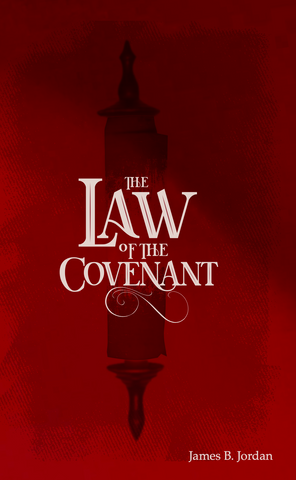
This is some of the exchange that followed with my response:
Satori Kane: Seams if you never read a book, you can claim whatever you want about it. “So maybe actually read the thing before you start quoting from it.”
Brian Le Flem: Quoting from what? The Bible? If so, then please tell me the exact passage where Jesus spoke about homosexuality
Joseph Salluce: Think not that I am come to destroy the law, or the prophets: I am not come to destroy, but to fulfill (Matt. 5:17).
Brian Le Flem: “I don’t see the word homosexuality in that verse? Do you eat shellfish? Do you wear clothes with mixed fabrics? Do you follow every law in Leviticus?”
My Facebook response:
Your arguments have been answered repeatedly over the centuries. You should be familiar with the hermeneutical history regarding the relationship between these laws (e.g., eating shellfish, beards, mixing fabrics, being unequally yoked: 2 Cor. 6:14, etc.) and the New Covenant. For example, Jesus declared all foods clean (Mark 7:19; also see Acts 10; 1 Tim. 4:3). Also, Jesus didn’t say anything about tripping blind people, rape, or having sex with animals. He didn’t have to. These and other laws were part of a moral category that carried over into the NT. There are many examples like these found in the epistles of Paul.
The book of Hebrews shows clearly that laws related to the priesthood, sacrificial system, temple ordinances, etc. were fulfilled in the person and work of Jesus Christ as the temple (John 2:19-21), priest (Heb. 4:14-5:10; 7:1-28), and ultimate sacrifice (John 1:29).
Laws regarding mixed fabrics and animals being “unequally yoked” are easily understood in terms of NT theology (2 Cor. 6:14). Again, there is ample commentary on all these issues, and there has been for centuries.
I can assure you that Stephen Colbert has no idea what he’s talking about regarding biblical theology. He’s a comedian and not a very adroit or funny one when it comes to theological topics. So, in the end, it’s the NT that picks and chooses for us, and anyone familiar with the NT usually knows this. So, no offense, but you really don’t know what you are talking about. You’re repeating “arguments” you’ve heard from others. I suggest you do some research to understand the position you are criticizing. This is the first rule in arguing honestly.

The Law of the Covenant
If we take a man-centered approach to these laws, we might say that the purpose of this legislation is only to ensure human prosperity. Such an approach to the law of God misses the most basic point. These laws show us God's own genuine personal care for His world, and as such these laws cannot be altered by human whim. To be sure, the Bible is man-oriented, and thus obedience to these laws will improve human life; but the laws are God's, and cannot be changed by man.
Buy NowA few years ago, I wrote the following regarding a similar display of biblical ignorance.
Don Lemon interviewed Matt Bevin, a Kentucky Republican gubernatorial candidate, and asked him some questions related to the Bible. Lemon, instead of studying the Bible for himself, played a clip from the TV show West Wing where Martin Sheen’s character shows his ignorance of the Bible:
My chief of staff, Leo McGarry, insists on working on the Sabbath. Exodus 35:2 clearly says he should be put to death. Am I morally obligated to kill him myself or is it okay to call the police? Here’s one that’s really important cause we’ve got a lot of sports fans in this town: touching the skin of a dead pig makes one unclean. If they promise to wear gloves can the Washington Redskins still play football? Can Notre Dame? Can West Point? Does the whole town really have to be together to stone my brother, John, for planting different crops side by side? Can I burn my mother in a small family gathering for wearing garments made from two different threads? Think about those questions, would you?
If Don Lemon was a good journalist, he would have looked at the Bible to see what it said on these topics and studied what commentators have written over the centuries.
The death penalty for Sabbath breaking is difficult to understand. For just one thorough study of the subject, see Dr. Gary North’s article “The Economic Implications of the Sabbath” in his book The Sinai Strategy: Economics and the Ten Commandments and the 100-page Sabbath Breaking and the Death Penalty: A Theological Investigation by James B. Jordan.
Before a journalist deals with a religious topic, he should at least know the arguments for a position. Unlike the subject of homosexuality which is condemned in the Old (Lev. 18:22; 20:13) and New Testaments (Rom. 1:25-32; 1 Cor. 6: 9-20; 1 Tim. 1:8-11), the New Testament indicates that some changes have been made to Sabbath observation (Gal. 4:10–11; Col. 2:16) and some corrections by example (Matt. 12:1–2, 5, 8, 10–12). The incident of Paul picking up “a bundle of sticks” (Acts 28:3–6) on the Sabbath (27:33) seems to indicate that the death penalty for some very particular action no longer apply under the New Covenant. The key New Testament verse is Colossians 2:16-17:
Therefore no one is to act as your judge in regard to food or drink or in respect to a festival or a new moon or a Sabbath day—things which are a mere shadow of what is to come; but the substance belongs to Christ.
In addition to Sabbath observance, food and drink are also mentioned, an important point when we get to the topic of “pig skins” below.
Dr. North writes on the Sabbath topic:
Paul was not speaking of ceremonial sabbaths, but the Mosaic sabbath. It is gone forever. The fact that the church celebrates a new day [the first day of the week] should testify to this theological fact.… In the case of the Mosaic sabbath, Paul provides us with full justification of just this sort of abandonment. We no longer enforce the Mosaic provisions, because the Mosaic sabbath ended at Calvary. We have a new day of rest, and we dare not arbitrarily select some of the Old Testament sabbath definitions, restraints, and legal sanctions without taking them all. We have no exegetical grounds for taking them all, since the very change in the day of celebration, not to mention Paul’s explicit teaching regarding the locus of responsibility for enforcement (the conscience), testifies to the break with the past.[1]
Now on to “pig skins” and football. A person who touched an unclean animal would only be declared “unclean” for a short period of time. There were no civil sanctions for touching or eating unclean or dead animals (Lev. 5:2-3; 7:19, 21; 11:8, 24, 26-27, 36, 39; 15:27; Num. 19:11, 13, 16; Deut. 14:8; Isa. 52:11). There may a NT clue that these OT regulations have also passed away when we find Peter “in Joppa with a certain tanner, Simon” (Acts 9:43). A tanner is someone who worked with dead animal skins.
Actually, footballs are not made from pig skin as a quick Google search would show. Even the folks at the Dollar Shave Club know this:
“Though early balls were fashioned from pig bladders, the ol’ pigskin was never actually made from pig skin. Today’s footballs don’t consist of pig parts of any kind, having been made from tanned and pebbled cowhide since the late 1800s.”[2]
It’s not hard to be informed today. In fact, a person has to try hard not to be informed.
Let’s suppose that footballs are made from pigskin leather. Anyone who touched it would have been considered ceremonially unclean “until evening.”
These food laws went through a change beginning with the ministry of Jesus since He declared all foods to be “clean” (Mark 7:19). Peter, a Jew, is told to “take, kill, and eat” (Acts 10:13) unclean animals which represented the nations and which were to be grafted into a growing New Testament ekklēsia (Acts 5:11; 8:1-2; 9:31; Rom. 11; Eph. 2:11-22).

No Other Standard
Bahnsen skillfully takes his critics’ arguments apart, showing that they have either misrepresented his position or misrepresented the Bible. Line by line, point by point, he shows that they have not understood his arguments and have also not understood the vulnerability of their own logical and theological positions.
Buy NowThe last bit of biblical nonsense concerns wearing two types of cloths and planting two different crops in the same field. While these were forbidden for teaching purposes, the punishment was not stoning (Lev. 19:19; Deut. 22:9, 11). The principles that these ceremonial laws teach, however, were carried over into the New Testament as object lessons:
“Do not be bound together with unbelievers; for what partnership have righteousness and lawlessness, or what fellowship has light with darkness? Or what harmony has Christ with Belial, or what has a believer in common with an unbeliever? Or what agreement has the temple of God with idols? For we are the temple of the living God; just as God said, ‘I WILL DWELL IN THEM AND WALK AMONG THEM; AND I WILL BE THEIR GOD, AND THEY SHALL BE MY PEOPLE. Therefore, COME OUT FROM THEIR MIDST AND BE SEPARATE,’ says the Lord. ‘AND DO NOT TOUCH WHAT IS UNCLEAN; and I will welcome you. And I will be a father to you, and you shall be sons and daughters to Me,’ Says the Lord Almighty” (2 Cor. 6:14-18).
Any good journalist would have studied this topic instead of using the script of a TV show as his source.
[1]North, The Sinai Strategy, 319-320.
[2]“(Pig)Skin in the Game,” The Bathroom Minutes (September 2015), No. 20, 4.

